
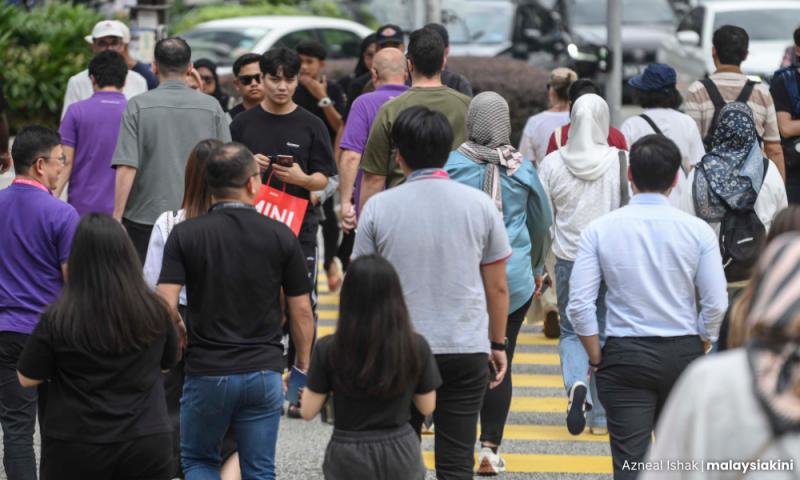

Eric Loo
Published: Oct 11, 2025 2:15 PM
Updated: 5:15 PM
COMMENT | When I left Malaysia in the late 80s, our population was around 16 million. Today, it surpasses 35 million. Which got me thinking - how has the ethnic composition shifted over the decades?
We were well distributed during Independence in 1957. Malays comprised about half of the 6.8 million population. Today, Malays account for about 70 percent.
Which begs the question: what will happen when the non-Malay population declines further to become politically insignificant?
Non-Malay talents that once anchored the professions, commerce, and education are continuing to drain across the Causeway and Down Under.
Meanwhile, current population growth is made up by the influx of workers from Indonesia, Bangladesh, Nepal, and India.
(According to the Malaysian Department of Statistics, about 3 million migrants live in Malaysia at the end of July 2023, which made up 8.9 percent of the country’s population of 33.4 million.)
Published: Oct 11, 2025 2:15 PM
Updated: 5:15 PM
COMMENT | When I left Malaysia in the late 80s, our population was around 16 million. Today, it surpasses 35 million. Which got me thinking - how has the ethnic composition shifted over the decades?
We were well distributed during Independence in 1957. Malays comprised about half of the 6.8 million population. Today, Malays account for about 70 percent.
Which begs the question: what will happen when the non-Malay population declines further to become politically insignificant?
Non-Malay talents that once anchored the professions, commerce, and education are continuing to drain across the Causeway and Down Under.
Meanwhile, current population growth is made up by the influx of workers from Indonesia, Bangladesh, Nepal, and India.
(According to the Malaysian Department of Statistics, about 3 million migrants live in Malaysia at the end of July 2023, which made up 8.9 percent of the country’s population of 33.4 million.)
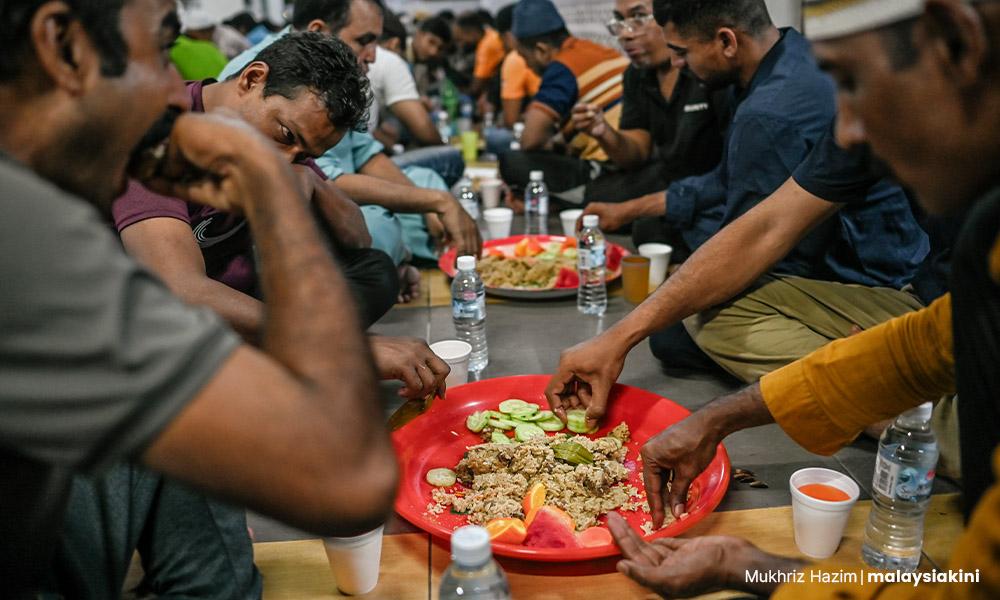
Bangladeshi migrant workers having their iftar meal in Negeri Sembilan on April 1, 2024
While migrant workers are not a significant voting bloc because they are not Malaysian citizens, despite the majority being Muslims, their presence does present Malaysia as a majoritarian Muslim state.
A smaller, narrower version of M’sia
The common points I had gathered from researching the Malaysian population trajectory are the need for political courage to reform the race-based structures born of the NEP, and to revive the spirit of Reformasi that once bridged the racial divides.
Failing which, the demographic shift into a full-blown Malay-majoritarian state will risk turning the country into “a smaller, narrower version of what it might have been”.
Yes “… into a smaller, narrower version of what Malaysia might have been.”
That reminds me of the former prime minister, Abdullah Ahmad Badawi’s diagnosis of the country’s “first class facilities, but a third class mentality” that had stymied the growth of our social capital, which he reiterated when he launched the National Integrity Plan in April of 2004.
While migrant workers are not a significant voting bloc because they are not Malaysian citizens, despite the majority being Muslims, their presence does present Malaysia as a majoritarian Muslim state.
A smaller, narrower version of M’sia
The common points I had gathered from researching the Malaysian population trajectory are the need for political courage to reform the race-based structures born of the NEP, and to revive the spirit of Reformasi that once bridged the racial divides.
Failing which, the demographic shift into a full-blown Malay-majoritarian state will risk turning the country into “a smaller, narrower version of what it might have been”.
Yes “… into a smaller, narrower version of what Malaysia might have been.”
That reminds me of the former prime minister, Abdullah Ahmad Badawi’s diagnosis of the country’s “first class facilities, but a third class mentality” that had stymied the growth of our social capital, which he reiterated when he launched the National Integrity Plan in April of 2004.
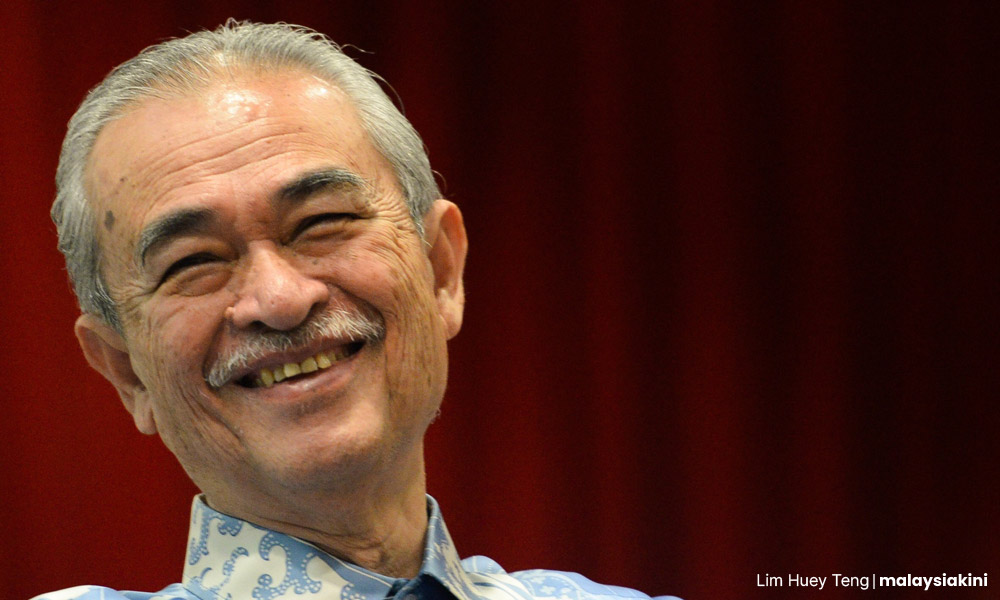
Former prime minister Abdullah Ahmad Badawi
Core to his prime ministerial agenda at each Umno general assembly was to call on the Malays to overcome their siege mentality.
Speaking at the Umno general assembly in 2007, he said: “The Malay community must create a critical mass of educated and skilled Malays, so that we can contribute more effectively in a variety of economic sectors. Intrepid Malays will be able to see the New Economic Policy from a perspective that will no longer alarm non–Malays.”
We read of a similar caution by Prime Minister Anwar Ibrahim.
Abdullah and Anwar both highlight that a country’s greatness is measured not solely by its economic indicators but also by the makeup of its people, their growth mindsets, resilience, values for hard work, and collective capacity to overcome adversities.
One of the indicators of a nation’s social capital is the UN Development Programme’s Human Development Index, which emphasises not on economic growth alone but also the people’s capabilities in assessing the development of a country.
Malaysia is currently placed in the Very High HDI category, ranked 67th out of 193 countries for its life expectancy, access to information and knowledge, and standard of living.
And, as a middle-power within Asean, we are well above our neighbours in terms of relative political stability, second only to Singapore.
Core to his prime ministerial agenda at each Umno general assembly was to call on the Malays to overcome their siege mentality.
Speaking at the Umno general assembly in 2007, he said: “The Malay community must create a critical mass of educated and skilled Malays, so that we can contribute more effectively in a variety of economic sectors. Intrepid Malays will be able to see the New Economic Policy from a perspective that will no longer alarm non–Malays.”
We read of a similar caution by Prime Minister Anwar Ibrahim.
Abdullah and Anwar both highlight that a country’s greatness is measured not solely by its economic indicators but also by the makeup of its people, their growth mindsets, resilience, values for hard work, and collective capacity to overcome adversities.
One of the indicators of a nation’s social capital is the UN Development Programme’s Human Development Index, which emphasises not on economic growth alone but also the people’s capabilities in assessing the development of a country.
Malaysia is currently placed in the Very High HDI category, ranked 67th out of 193 countries for its life expectancy, access to information and knowledge, and standard of living.
And, as a middle-power within Asean, we are well above our neighbours in terms of relative political stability, second only to Singapore.
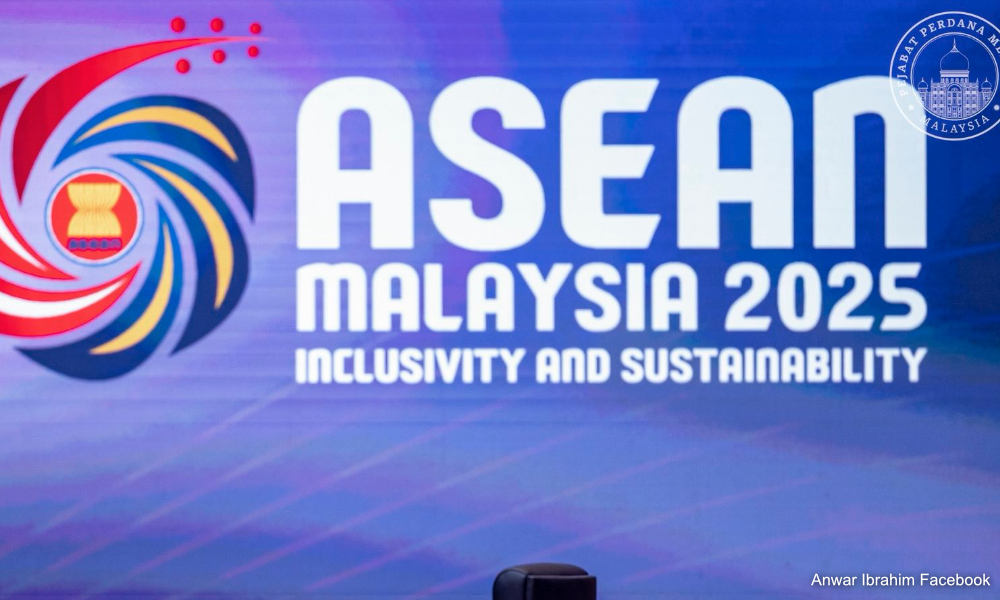
Malaysia, being “truly Asia”, does look good on paper as the region’s education hub, regional diplomacy, and a melting pot of different cultures, customs, and cuisines.
But will the nascent “liberal democracy” under the Madani government progress further or devolve into intra-racial conflict in a generation or two, given the demographic shifts?
Impending political irrelevance of non-Malays
We can see on the ground that the pluralism that once drove our economic vitality and cultural richness is being hollowed out year by year.
If this trend continues, it is conceivable that the non-Malay voices that have kept our politics in an uneasy balance since 1957 may just fade to political irrelevance.
When PAS, Bersatu, and Umno do not have the non-Malays to target as scapegoats, when they do not have any real cause to fight for bumiputera special privileges, what then?
It will be PAS against Umno. Bersatu against PKR. Each outdoing the other in barracking for racial supremacy and religious parochialism. Keluarga Malaysia will become dysfunctional - if we are not already.
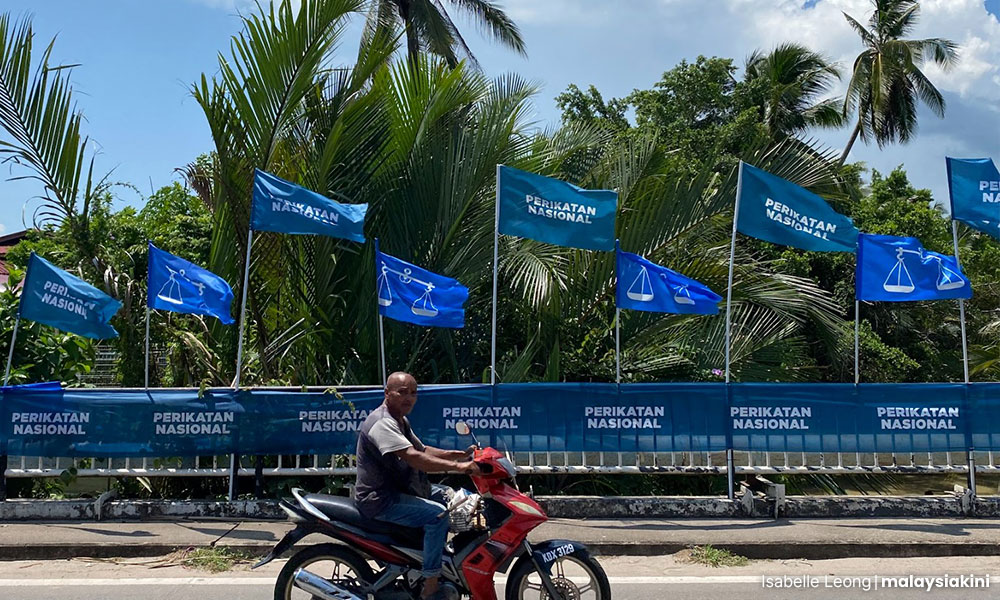
With MCA and MIC being reduced to little more than footnotes, and DAP a token coalition partner, it’s not hard to imagine the day when Umno-PAS-Bersatu will no longer need to compromise with their non-Malay counterparts.
With no clear non-Malay targets, the Ketuanan Melayu narrative will lose its political potency. What will replace it may be a more strident Malay nationalism or, most disconcertingly, a push to become an Islamic state.
I recall being among the thousands of yellow-shirted protesters on the streets of Kuala Lumpur in August 2015, chanting “Bersih! Reformasi!”
We stood shoulder to shoulder - Malays, Indians, and Chinese. For a moment, we felt the possibility of fundamental reforms.
But we have grown weary. We have retreated to our respective communal comfort zones, and our racial pulse beats ever stronger than in the past struggles for inclusivity and transformative change.
Non-Malay presence, given their lower birth rate and continual emigration, will fade to insignificance in a generation or two.
But, on a hopeful note, the notion of a plural Malaysia need not vanish with it. Unless the government continues to choose the false comfort of numbers over the more courageous task of building a nation that belongs to all.
ERIC LOO is a former journalist and educator in Australia and a journalism trainer in parts of Asia.
***
Many (tho' not all) Malays will be glad to see the last Chinese leave Malaysia a la 'Good riddance to bad rubbish' - that's the truth and I got it straight from a Malay matey.

No comments:
Post a Comment